Get With the Program: Accelerating Community College Students’ Entry Into and Completion of Programs of Study
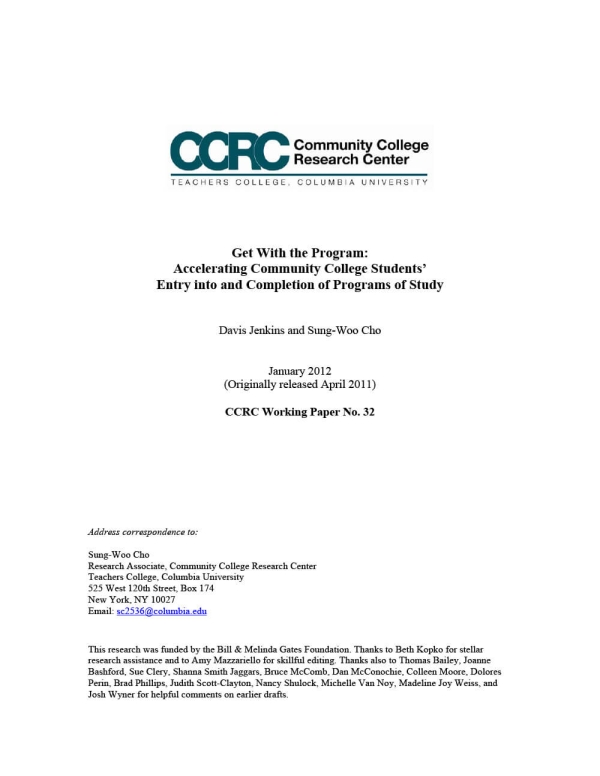
This paper argues that to improve completion rates, colleges must help students enter programs as soon as possible; it presents a method for measuring program entry and completion rates using transcript data.
High School Dual Enrollment Programs: Are We Fast-Tracking Students Too Fast?
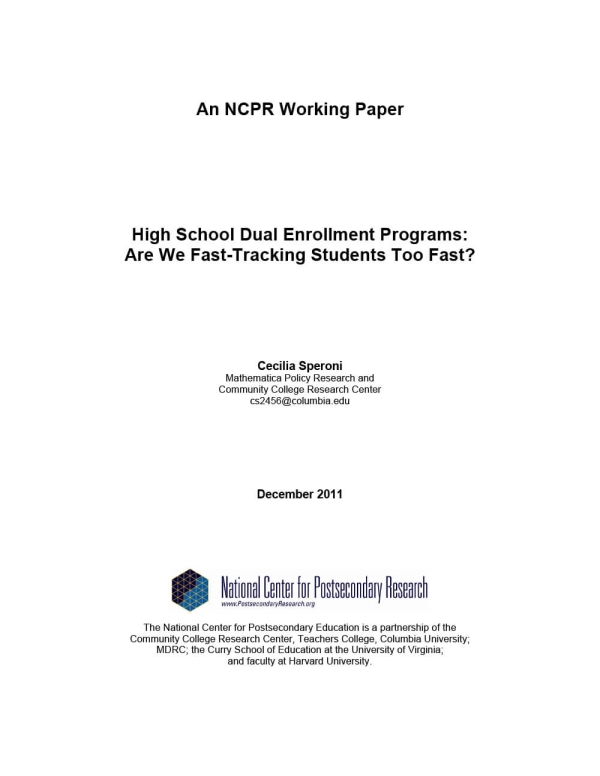
This NCPR working paper uses a regression discontinuity design to gauge the causal effects of dual enrollment on rates of high school graduation, college enrollment, and college completion among students on the margin of eligibility for dual enrollment participation.
The Impacts of State Performance Funding Systems on Higher Education Institutions: Research Literature Review and Policy Recommendations
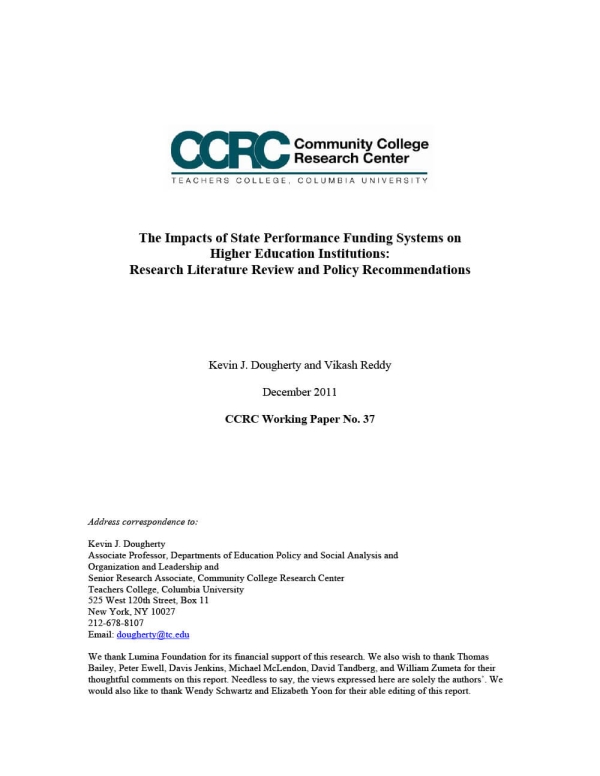
Over the past three decades, almost half of all states have implemented some form of performance funding in an effort …
Assessing Developmental Assessment in Community Colleges (Assessment of Evidence Series)
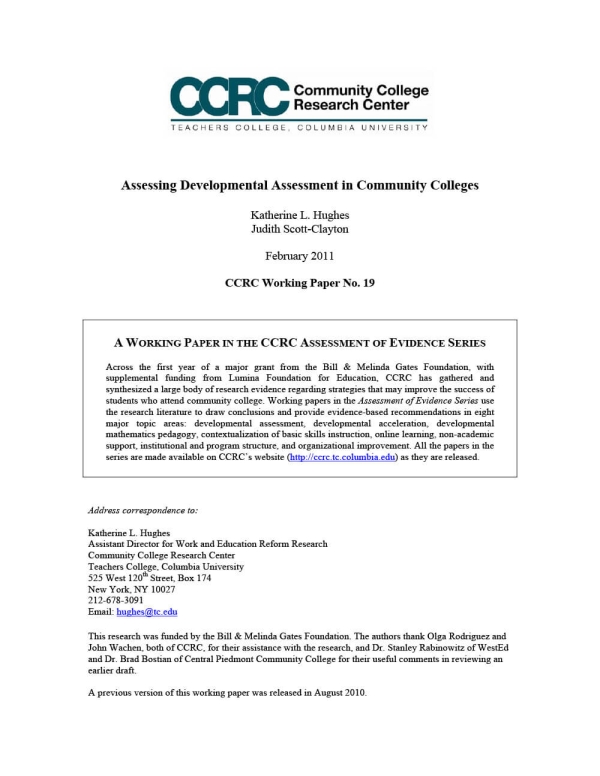
This paper examines the role of entry assessment and its implementation, the validity of common assessments, and emerging directions in assessment policy and practice.
Determinants of Students’ Success: The Role of Advanced Placement and Dual Enrollment Programs
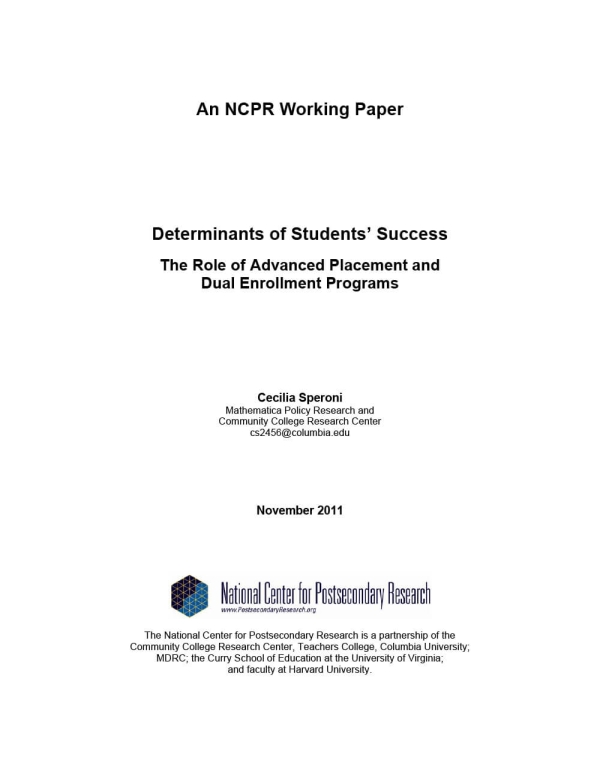
Using data from two cohorts of all high school students in Florida and controlling for schools’ and students’ characteristics, this NCPR working paper examines the relative power of AP and dual enrollment in predicting students’ college access and success.
